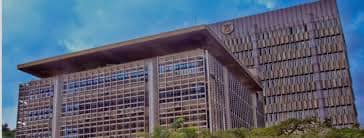By Denis Jjuuko
You have probably heard somebody say these not very magical words; “It is very little money,” especially when they are being asked to pay back some money, they were so desperate to borrow. Or somebody has accosted you for depositing money on a particular mobile money line without asking them first as they had a debt on a line on which you deposited.
You also probably know somebody who came crying to borrow some money and has since switched off their phones or no longer answers your phone call. Some wise people have advised Ugandans to only lend people money that they can afford to lose. Imagine!
This habit of failure to pay back is extensive. I saw a post with a quote attributed to the Bank of Uganda Deputy Governor saying that the Uganda Bankers Association had told him that commercial banks in the country have Shs5 trillion of loans in courts.
Apparently, once some people borrow money from the banks, when payment time comes, they run to court disputing the amount to pay or the legality of the lender. As you know courts take their time to decide non-political cases. It can be years before a judge is allotted the case and then the scheduling and adjournment can take forever. As the judge is about to give his judgement, he is transferred and another judge is appointed to hear the case. Adjournment of cases is the norm in Ugandan courts. In the meantime, the lender is losing money and the borrower is in court purposely to play the long game.
It’s perhaps one of the explanations for the high interest rates we pay on loans thereby affecting the country’s economic growth. Usually, we only complain about the banks and not our failure to honor our loan obligations. Failure to pay debt is one of the major impediments to growth.
In his top selling autobiography, legendary businessman, Bulaimu Muwanga Kibirige (BMK) and now deceased, credited his growth on supplier’s credit where he received goods on credit and paid back. He said that many of his colleagues who always found ways not to pay back suppliers had their businesses collapse within a few years. Some of these people, he said, had been wealthier than him. By the time of his death, some used to call him for financial assistance.
Of course, debt payment issues aren’t squarely on the shoulders of the debtors. The banks aren’t innocent either but there are also other issues why interest rates are high in Africa. The size of the economy, political instability, high levels of poverty and high inflation rates among others could provide richer explanations. But the borrowers can’t always be absolved.
The majority of people in Africa have no predictable income since they largely work in subsistence agriculture, growing food for household consumption with the little surplus left to sell. Even those who practice commercial agriculture, the majority have small gardens and always unsure of their income.
Today the tomato harvest is good but everyone has had a bumper harvest thereby crushing the prices. Next season, few farmers have remained in the business and the prices are high prompting everyone to grow the tomatoes the following season. By harvest time, there are simply too much tomatoes and the prices are down again. That is the circle most smallholder farmers operate in.
Banks looking for somebody to lend money won’t even bother giving them a call. They know that chances of a borrower not being able to pay back are high. If they are to lend, they extend as little as possible (at high rate) which is unable to help get a farmer out of poverty.
Yet 50km away, in the country’s capital, the tomatoes are on high demand that some are being imported into the country either as fresh tomatoes or factory processed tomato paste (look at the shelves in your local supermarket).
This being the rain season, there are reports that farm gate milk prices have crushed by more than 50 percent. In December, at the first sign of a dry season, the prices will go up again. But farmers have no alternatives to preserve their milk and wait for the prices to go up. The money they would have made due to increases in the prices in the dry season will go into looking for water for the cows. You can say that about almost every crop or produce.
If we want lower interest rates on loans, there is a need to ensure that the majority of our population who are involved in agriculture earn a predictable income, the judiciary must become efficient in disposing cases (Katikkiro Mayiga writes about this in his book Uganda:7-Key Transformation Idea), and cultivate a culture of people paying back their debts and stabilize the economy and the politics.
The writer is a communication and visibility consultant. djjuuko@gmail.com










